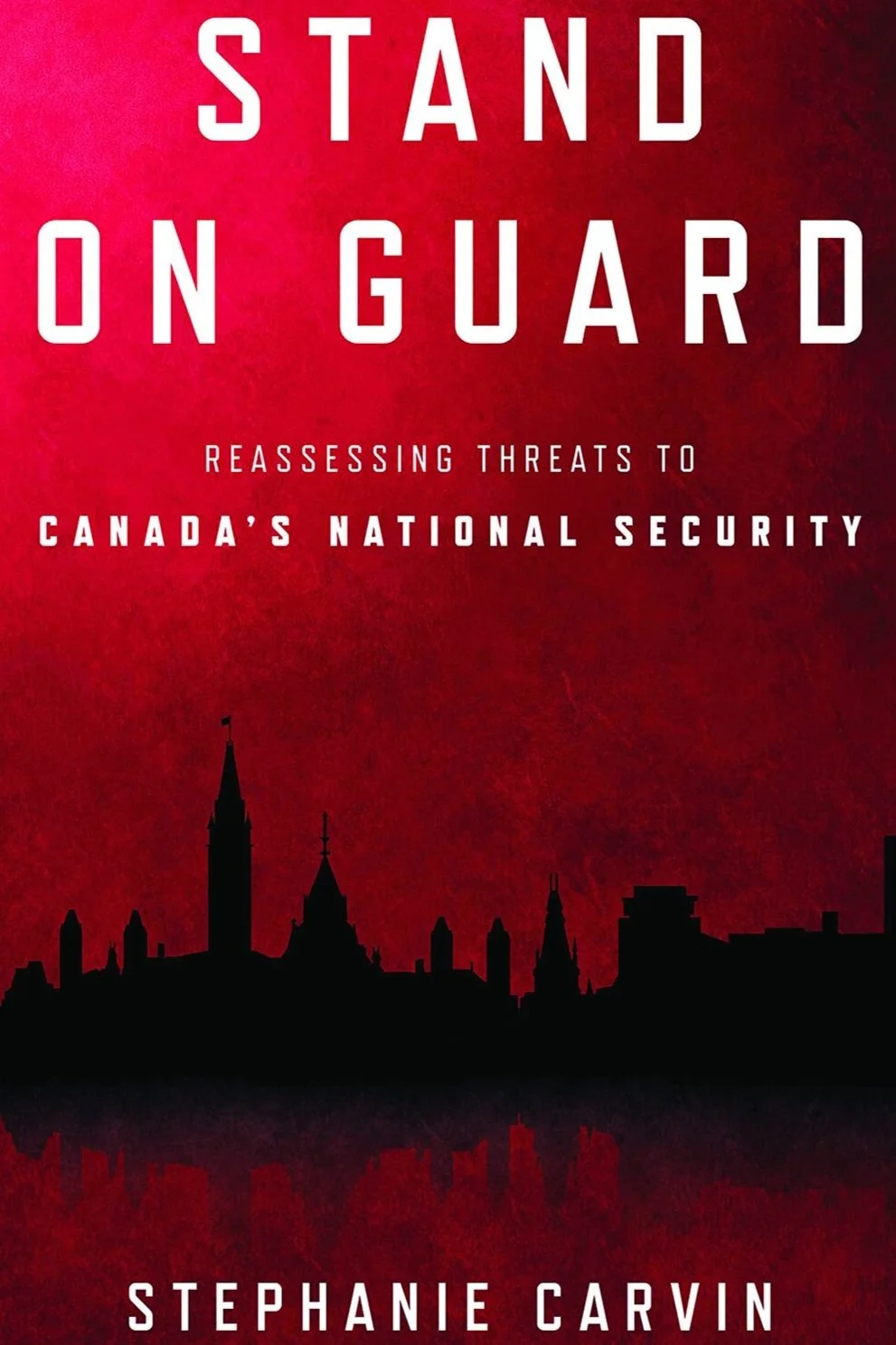By David Pugliese
Stephanie Carvin’s new book, Stand on Guard, is billed as an “insider’s look” at the issues facing the Canadian security and intelligence community as well as the threats this country will have to deal with in the coming years.
Carvin is an associate professor at the Norman Patterson School of International Affairs at Carleton University in Ottawa. From 2012-2015, she was an analyst with the Government of Canada focusing on national security issues.
Carvin is sometimes quoted by journalists as they write about national security issues, in particular those dealing with the Canadian Security Intelligence Service (CSIS) and the electronic spy agency, the Communications Security Establishment or CSE.
Other national security journalists stay well clear of Carvin, viewing her as nothing more than a CSIS/CSE cheerleader.
In her book’s acknowledgements and opening pages, Carvin does little to dispel that view. She bemoans the fact that a number of published books on the intelligence world in Canada are from former employees who have been critical of national security agencies.
Carvin thanks a host of academics, a number of whom are closely tied to the Department of National Defence or to the spy agencies. Carvin also acknowledges the “cheerleading” from Laurie-Anne Kempton, DND’s Assistant Deputy Minister for Public Affairs and Laura Payton, a top public relations official with the Communications Security Establishment.
Unfortunately, a reader looking for that “insider’s” account of national security issues will be significantly disappointed. Stand on Guard – Reassessing Threats to Canada’s National Security is a predictable examination of the already well known threats Canada faces in the future. Those include espionage, violent extremists, cyber warfare, disinformation and foreign influence.
The book is well written and each chapter examines various threats.
But there isn’t anything new in this book and all of these topics have been covered extensively in the news media over the last several years as well as through publicly available government and parliamentary reports. In fact, Carvin’s book is largely a rehash of incidents and concerns already well documented.
Astute readers will find irony, or perhaps hypocrisy, in some portions of Stand on Guard.
Carvin writes about the need for more journalists to cover national security topics. But this is the same Stephanie Carvin who in 2019 was on social media trying to undercut the reputation of Jim Bronskill, the Canadian Press news service journalist who has covered CSIS and CSE for decades. Bronskill is one of the top journalists in the country reporting on national security and his dogged work has uncovered on multiple occasions wrongdoing and incompetence by Canada’s spy agencies.(So it’s understandable that Carvin’s former colleagues are not keen fans of Bronskill or journalists like him).
Canada’s security agencies will indeed face a number of challenges in the future. One of those, which isn’t really covered in Stand on Guard is the need to recruit a younger and more skilled workforce for national security organizations. CSIS in particular has faced significant difficulties in attracting much needed expertise from Canada’s Muslim community and other ethnically diverse communities in this country. It hasn’t helped that CSIS has faced several high-profile lawsuits from its employees over allegations of systemic racism.
Understandably, such an issue might be difficult for Carvin to address without facing criticism.
In September 2020, Carvin proudly revealed on social media that years ago she was the one who had baked a series of controversial cakes celebrating targeted killings by U.S. drones.
The cakes, baked when Carvin was working with the Canadian government in national security, had already attracted significant outrage when they were first revealed online in 2013 but Carvin’s role was anonymous at the time.
The U.S. drone program has killed a number of terrorists but has also claimed the lives of thousands of innocent Muslims. Carvin’s 2020 admission and her arguably flippant attitude towards such killings prompted an immediate backlash. She was labelled a racist. More than 1,100 people signed a petition condemnin Carvin’s actions but Carleton University declined to do anything. Carvin eventually apologized.
The controversy soon disappeared and Carvin continues to be sought after by some journalists for her expertise, including on concerns about growing Islamophobia in Canada. For instance, she was sought out by the media in the summer of 2021 after a Muslim family was murdered in London, Ontario.
For some, however, that was the height of hypocrisy.
“Some of the very same “national security experts” responsible for legitimising the demonising discourse of “Muslim extremism” are now being treated as authorities on how to fight anti-Muslim extremism,” legal academic Azeezah Kanji wrote in an opinion piece published by Al Jazeera in July. “Professor Stephanie Carvin, for instance, was exposed last year for baking cakes that celebrate Muslim drone deaths, yet continues to be quoted in media analyses of the London killings – proving that it is entirely possible to have your Islamophobic cake and eat it too.”
Undoubtedly, Carvin’s friends in the national security establishment will be more than happy with her new book. And there is no question Stand on Guard will be placed on the reading lists at the Royal Military College, the Canadian Forces College as well as in various courses for government employees involved in national security.
But ultimately the book adds little of value and does nothing to advance the examination of the new threats Canada may face in the future.


